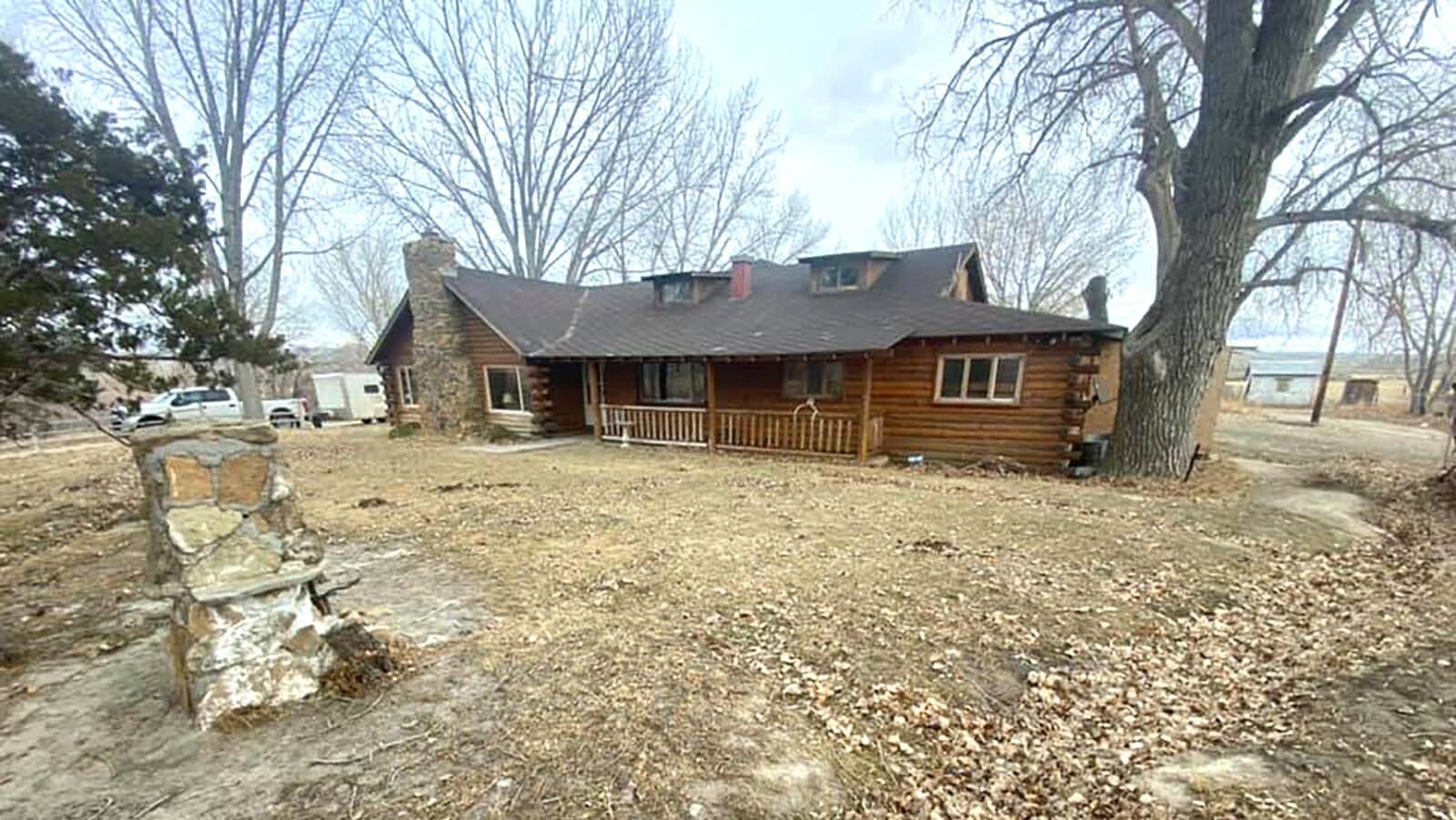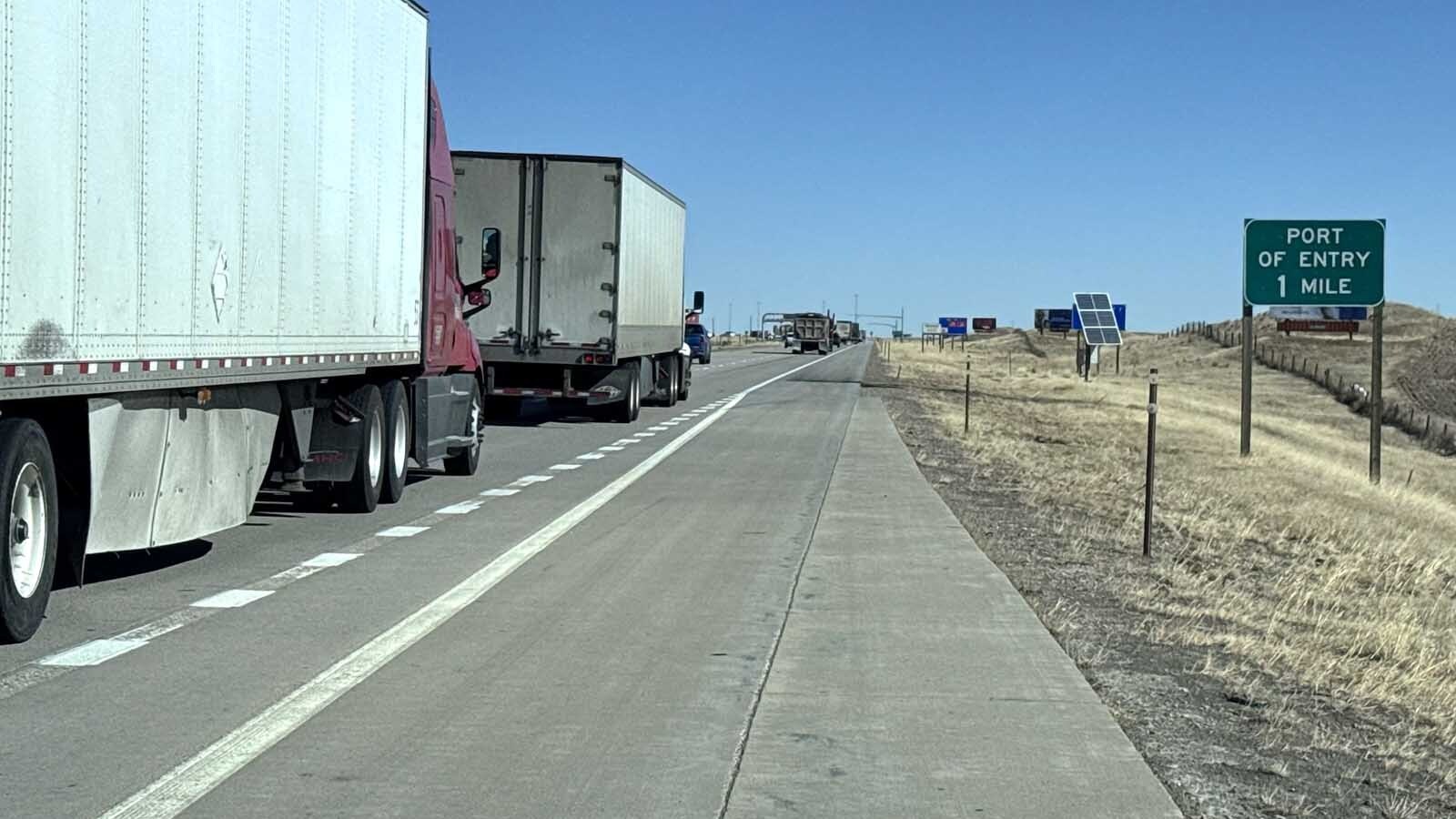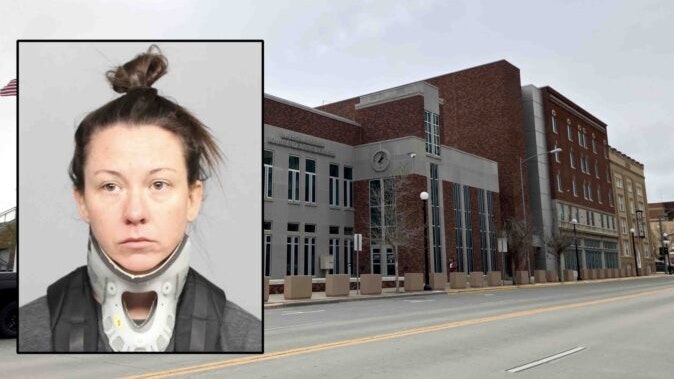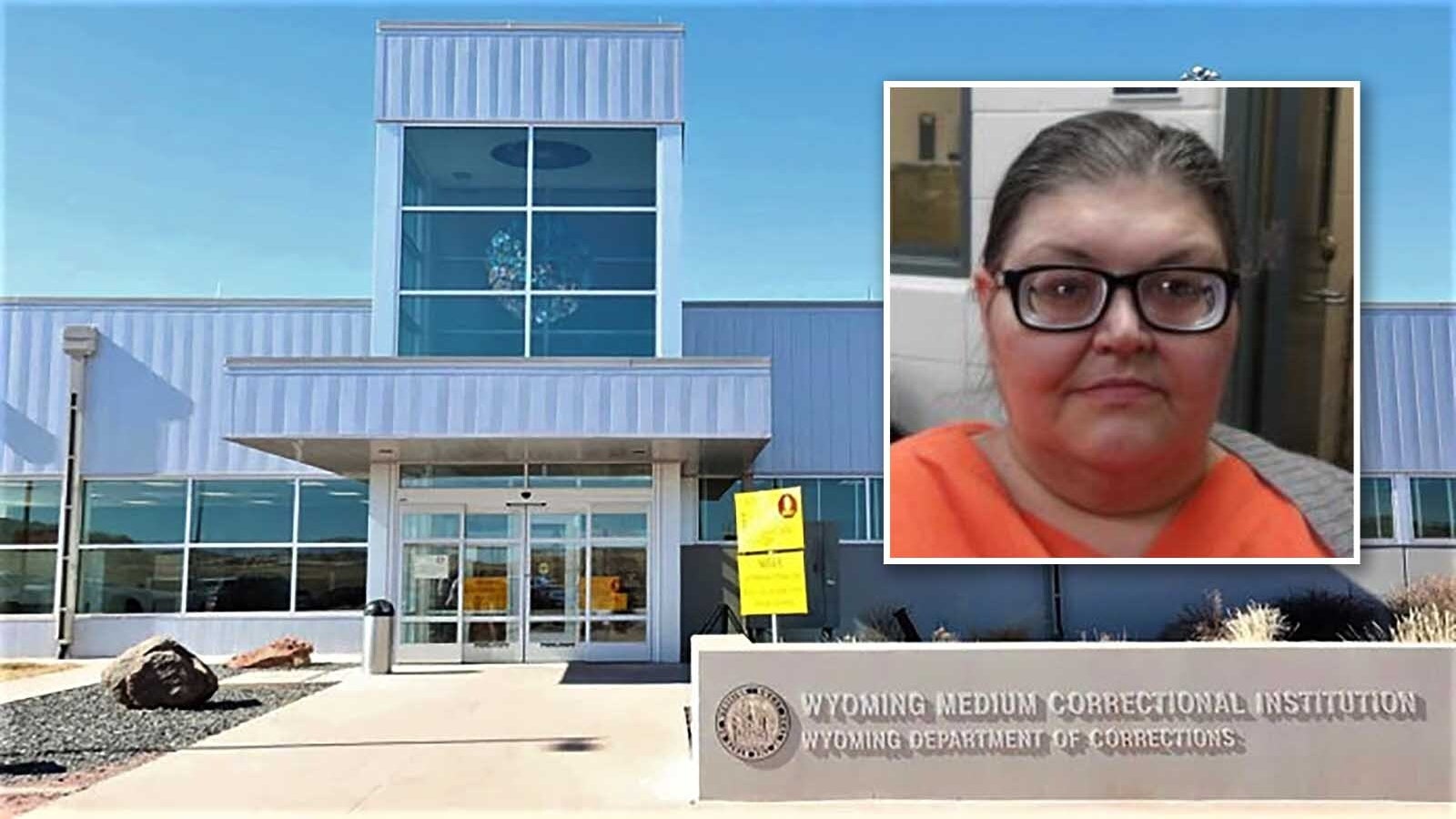Claiming they were subjected to severe forced labor and abusive conditions, two men who as teens were forced to work on a youth therapy ranch in Powell, Wyoming, are suing the ranch and other businesses in federal court.
Andrew Lewis, of Texas, and Andrew Unruh, of California, on Friday filed a 21-page civil lawsuit in the U.S. District Court for Wyoming against the Triangle Cross Ranch, alleging forced labor and human trafficking.
The complaint names other defendants, including:
- Triangle Ranch operator Gerald (Jerry) Schneider.
- His wife Michaeleen Schneider.
- The Schneiders’ son and ranch manager, Mark Schneider.
- The Schneiders’ son and program director, Matthew Schneider.
- The Schneiders’ son the Rev. Daniel Schneider,
- Monks of the Most Blessed Virgin Mary of Mount Carmel, which is doing business as Mystic Monk Coffee.
- Thomas Geoge, who reportedly served as executive director at the ranch.
- Society of Our Lady of the Most Holy Trinity, a Texas-based church with at least one location in Wyoming.
“This is an action brought by and on behalf of human trafficking victims (in) the troubled teen industry,” reads the men’s civil complaint. “Plaintiffs and others similarly situated were transported to Wyoming, often through legal kidnapping at the suggestion of (the ranch owners), and forced to work in unfathomable conditions while receiving little to no formal education, behavioral treatment or therapy.”
Gerald Schneider declined Monday to comment to Cowboy State Daily about the allegations in the lawsuit, saying his wife also would not comment.
Mark Schneider could not be reached by phone. Matthew and Daniel Schneider, and the Society of Our Lady of the Most Holy Trinity, did not respond by publication time to voicemails.
Thomas George did not respond by publication time to a message requesting comment.
The Ask
Lewis and Unruh are asking for a jury trial. They say they are entitled to now be paid for their labor, including $16.31 per hour of labor for the first 40 hours per week and $24.47 per hour for every hour beyond 40 per week. Their workdays allegedly ranged from 12-18 hours of labor.
They also are asking for compensatory damages for emotional distress for living in allegedly “squalid, restricted and threatening” conditions.
Courts have given damages to trafficking victims subjected to forced labor in amounts ranging from $415 per day to $780 per day, the complaint says. The men are asking for “at least $780 per day due to their especially vulnerable nature at the time of their injuries,” since they were minors and had mental and emotional issues and family distress at the time, says the complaint.
They’re also seeking compensatory damages in an amount to be proven at trial, and repayment of the amounts their parents reportedly paid to keep them at the ranch (between $6,000 and $9,000 per month, per teen).
The men are asking for pre- and post-judgment interest on their awards, at 10% per year.
Wyoming And Montana Ranch
Lewis and Unruh’s complaint says that Gerald and Michaeleen Schneider have owned the 50,000-acre working Triangle Cross Ranch property since 1973. It has more than 1,000 head of cattle and is believed to cross state lines between Wyoming and Montana, says the complaint.
The owners in 1997 founded Mount Carmel Youth Ranch, a Wyoming nonprofit group, at that location to provide group home licensed services to troubled teens, says the complaint.
The Mount Carmel board of directors chose in 2012 to close the facility and turn in their license, the complaint says.
The ranch owners decided to continue the ranch’s work as a youth home, however, and one month later applied to the Wyoming Department of Family Services (DFS) for a license in the name of Triangle Cross Ranch, but didn’t complete the licensure process, says the document.
The complaint says the owners kept operating the ranch for nearly two years without a license until the Wyoming Supreme Court blocked them from continuing to operate the youth-camp ranch in 2015.
Then the ranch reportedly reopened in 2018.
“(They) began continuing their pattern of systematic abuse and exploitation of delinquent teenage boys for their labor,” the complaint says.
Reality Therapy
The complaint says the ranch operators used “reality therapy,” but had a different understanding of it than the Vietnam War-era founders of the therapy who sought to refocus people on elements of their lives they could control.
“It has nothing to do with giving someone a ‘dose of reality’ or the threat of punishment,” the complaint adds. “As practiced by TCR (Triangle Cross Ranch), reality therapy is merely abuse.”
The Wyoming Supreme Court in 2015 responded to TCR’s description of the therapy, saying that “the reality is that healthy people do not pay for the privilege of stacking hay.”
The men claim they were forced to work in unfathomable conditions while receiving little to no formal education, behavioral treatment or therapy, starting early in the morning until late at night, without pay and under the “constant threat of physical and psychological punishment and further confinement.”
When they were boys in 2014, the men’s parents paid the ranch to host them, says the complaint. The teens allegedly worked without pay for months, fearing they’d be abused or confined if they did not.
Holes
The men claim ranch operators performed a jail-style strip search on them when they arrived, then launched “systematic control” over them by threatening to confine them if they didn’t perform.
The tasks included running miles of irrigation lines, picking rocks out of fields for days at a time, setting thousands of fence posts, loading massive trucks of hay daily, repairing barbed wire fences, cleaning, cooking, tending farm animals, birthing livestock, maintaining fires throughout the night to stay warm and performing labor at the coffee company or church.
“Laboring conditions at TCR were hazardous, causing numerous injuries and even frostbite,” the complaint says, adding that the teens suffered food and sleep deprivation, beatings and emotional abuse.
The teens were allegedly forced to watch the 2003 movie “Holes” when they arrived, which is about a wrongly convicted teen sent to a Texas labor camp to dig holes all day, until his attorney proves his innocence via alibi and the camp is shut down.
The plaintiffs call the movie “an indoctrination video.”
The Shed
The men say they had to live in a rudimentary uninsulated shed without any heat that had solar-powered alarms to prevent them from leaving. They were punished for going to the bathroom at night, and had to urinate in jugs and “defecate wherever they could,” the complaint alleges.
The teens believed they could move into a bunkhouse if they worked well, but that they’d be sent back to the shed if they worked poorly, says the document.
The complaint alleges the teens couldn’t communicate with their parents about their living conditions, and they were forced to rewrite letters that spoke negatively of the ranch.
Andrew Lewis’ Stay
Lewis stayed at the ranch for 114 days from April 4 through July 27, 2014, the complaint says.
He was 14 years old.
Lewis claims he was “trafficked” by TCR and the other defendants from Texas to Wyoming to perform forced unpaid labor at least 12 hours a day with little food or water.
He alleges that he ran irrigation pipes for hours; shoveled manure every day; installed flooring at the Our Lady of the Valley Church; herded cows and bulls of at least seven different brands for the Schneider family and the monastery; bagged hundreds of bags of grain each day; acted as a human traffic cone in fields during pesticide spraying so staffers would know where they’d already sprayed; fed, groomed and cared for all animals every day; welded; installed and fixed miles of barbed wire; and packaged coffee for Mystic Monk Coffee.
Lewis had “nearly daily untreated flash burns” from welding with improper welding gear, but was forced to keep working, the complaint claims.
Thomas George allegedly coordinated Lewis’ work at the church while the Rev. Daniel Schneider allegedly coordinated the teen’s work at the coffee facility.
If he did not perform, Lewis was threatened with less food, more labor, less-desirable tasks, less sleep, worse temperature and sleeping conditions, running up and down a hill and enduring physical, verbal, psychological and emotional abuse, the complaint claims.
Andrew Unruh’s Stay
Unruh’s portion of the complaint says he stayed at the ranch 163 days from Nov. 13, 2013 until April 25, 2014.
Unruh doesn’t divulge how old he was at that time.
Like Lewis, he claims he was “trafficked” from Texas to Wyoming to do unpaid labor, pursuant to a recruiting scheme by which the ranch promised results to parents of troubled teens, the complaint says.
“At one point an employee … cocked his 1911 .45 ACP after stating that every person that had ever ran away from the ranch was dead,” the document adds.
Unruh claims he installed flooring and air conditioning at the church, shoveled manure; fed, herded, cared for and groomed animals; welded and did other mechanical repairs; installed and repaired fencing; baled hay; carried 150-pound propane tanks behind staffers so they could burn tumbleweeds in the canals; and bagged coffee for Mystic Monk Coffee.
“Unruh informed staff of multiple painful injuries,” says the complaint. “(The) owners forced Plaintiff Unruh to work without proper medical treatment.”
Unruh claims he was kept from progressing though the “levels” at the ranch and so was stuck there. He said he was threatened with the denial of medical treatment for injuries and illnesses, with bullying, with worse tasks, less sleep and various forms of abuse.
The Counts
The men list three civil claims.
They claim the Schneiders, their three sons and Thomas George subjected them to forced labor, which is disallowed by federal law.
They are launching another forced labor claim against all the individuals and businesses they are suing.
And they claim all defendants trafficked them.
Other Ranch Lawsuits
A different set of plaintiffs, including females who had stayed at a youth treatment ranch, sued the Triangle Cross Ranch and another ranch, Trinity Teen Solutions, in 2020, alleging forced labor and other claims as a class action lawsuit.
U.S. District Court for Wyoming Chief Judge Scott Skavdahl in 2022 denied the lawsuit class action status. Plaintiffs appealed that decision in the 10th Circuit Court of Appeals. The appeals court heard oral argument on the matter Sept. 13 of this year.
Skavdahl on June 15 also dismissed a different 2020 lawsuit by yet another set of plaintiffs against Triangle Cross Ranch, the Schneiders, George and Society of Our Lady of the Most Holy Trinity.
In that case, the plaintiffs and the ranch operators had agreed to seek dismissal of the case.
Clair McFarland can be reached at clair@cowboystatedaily.com.





